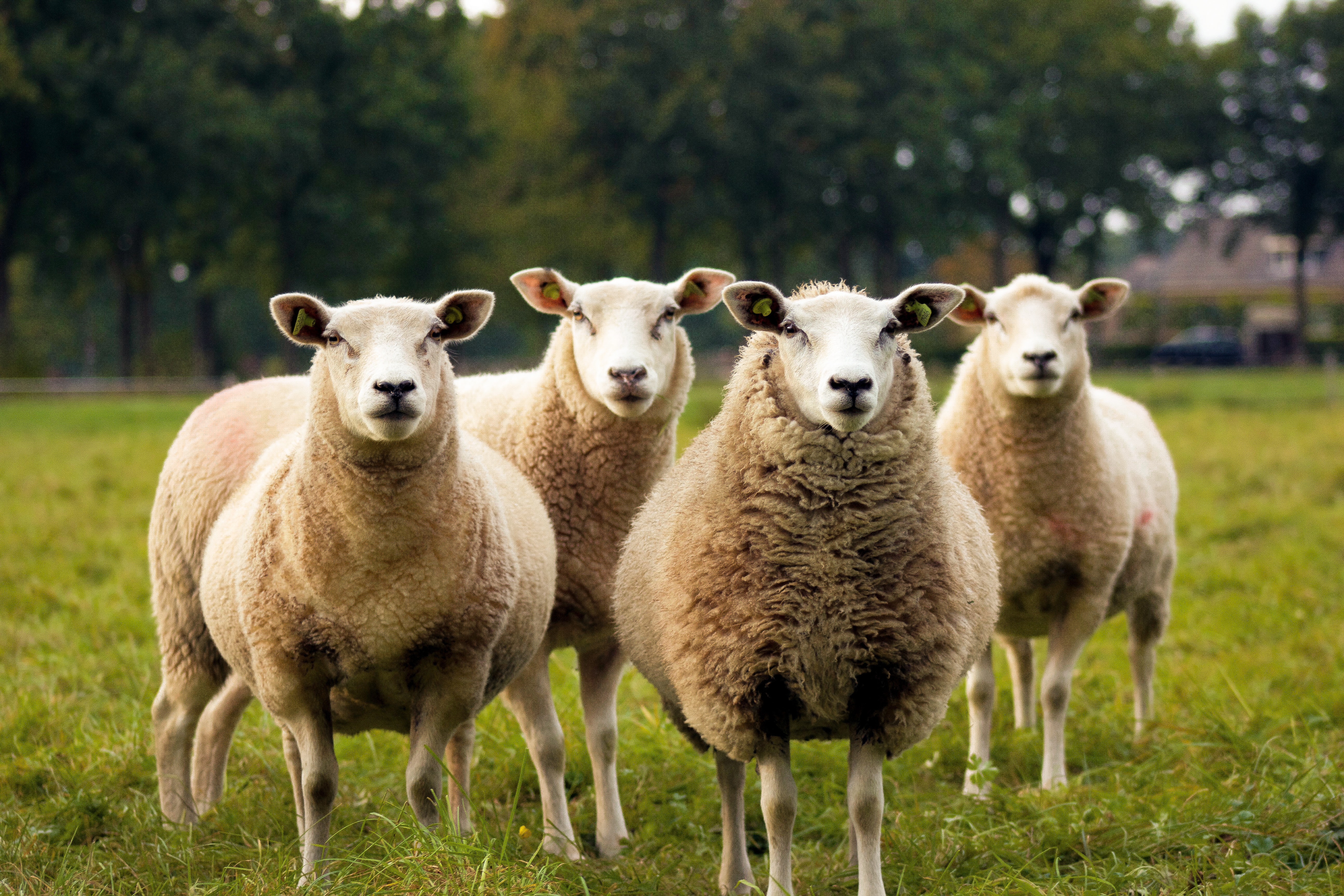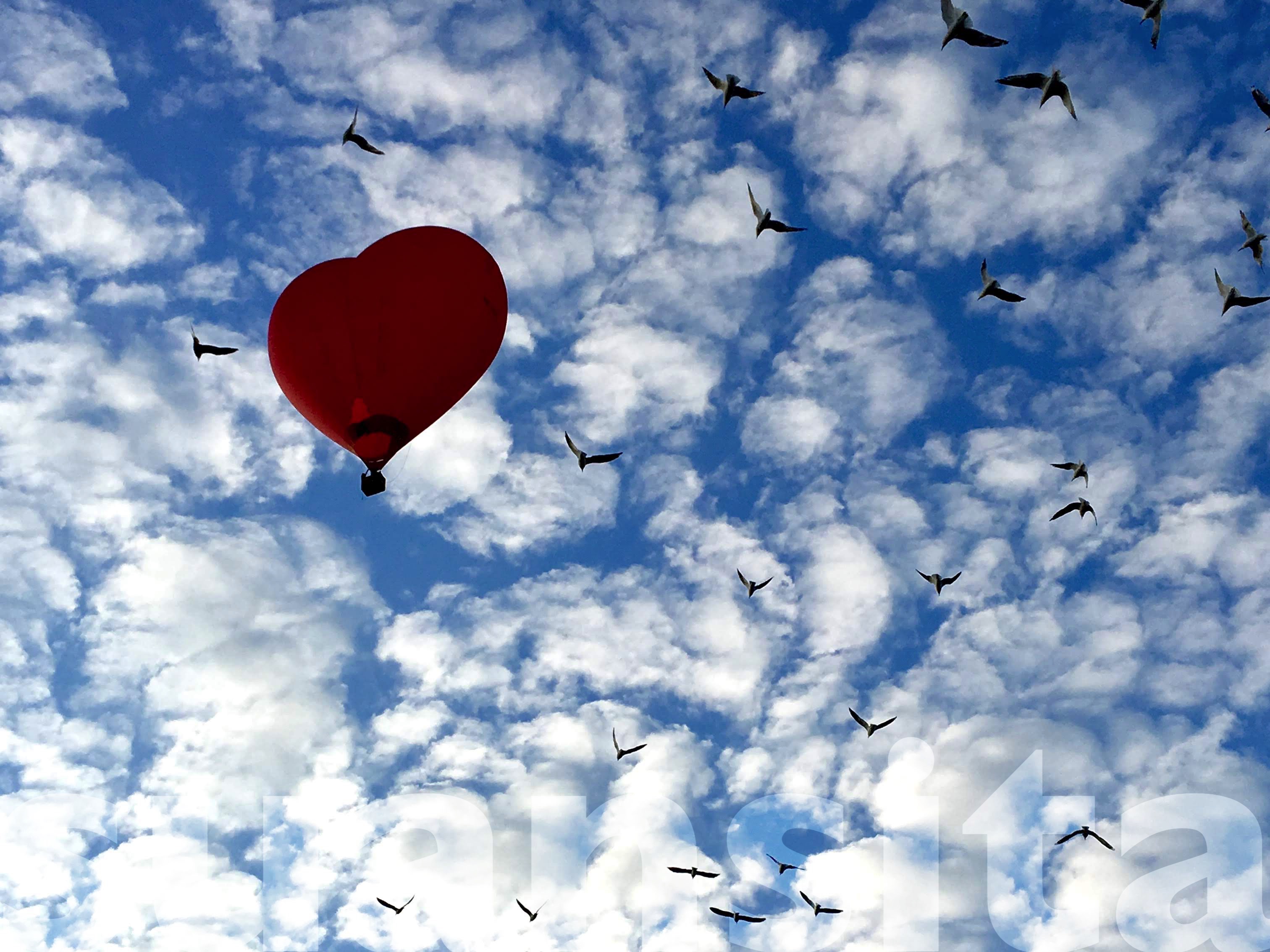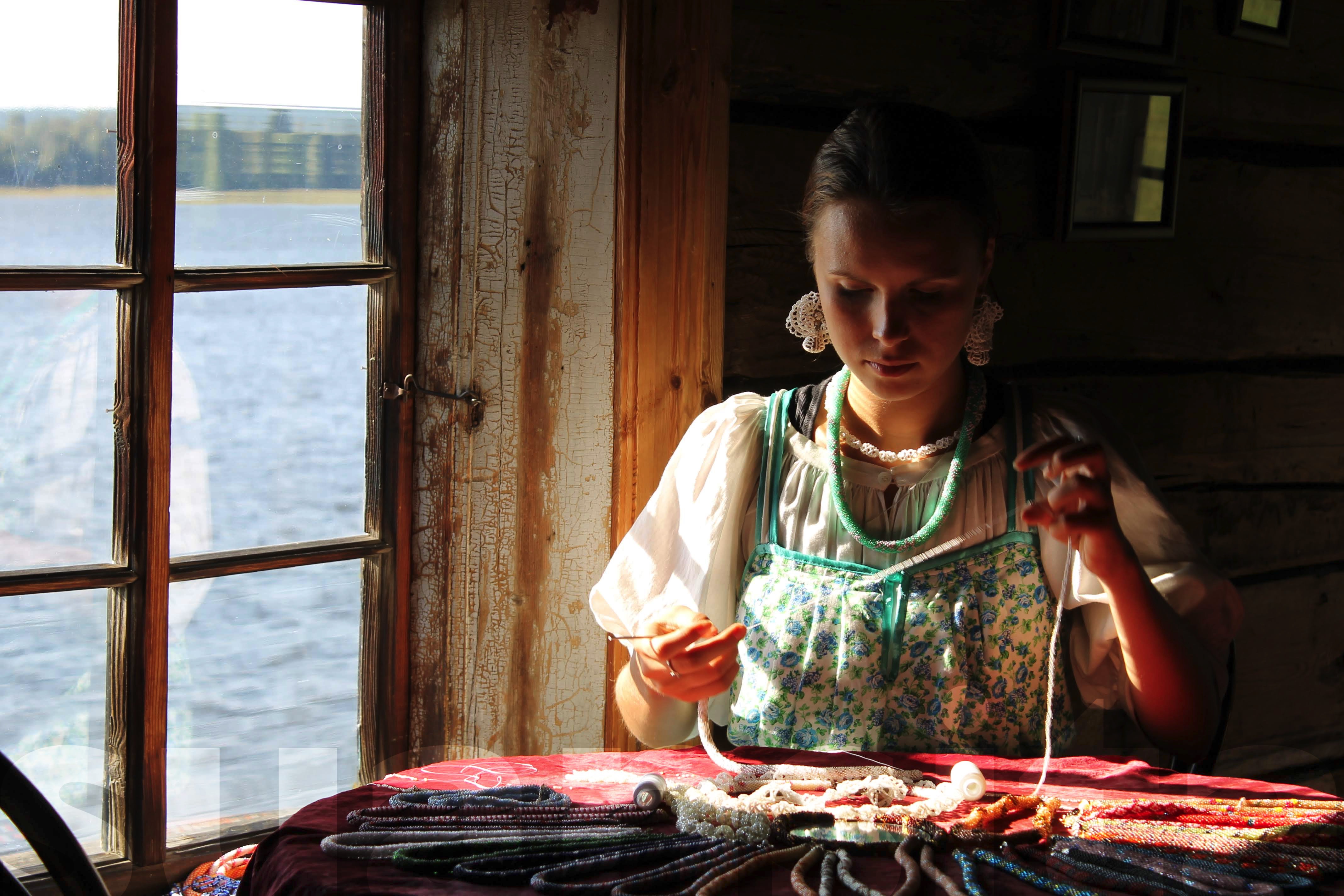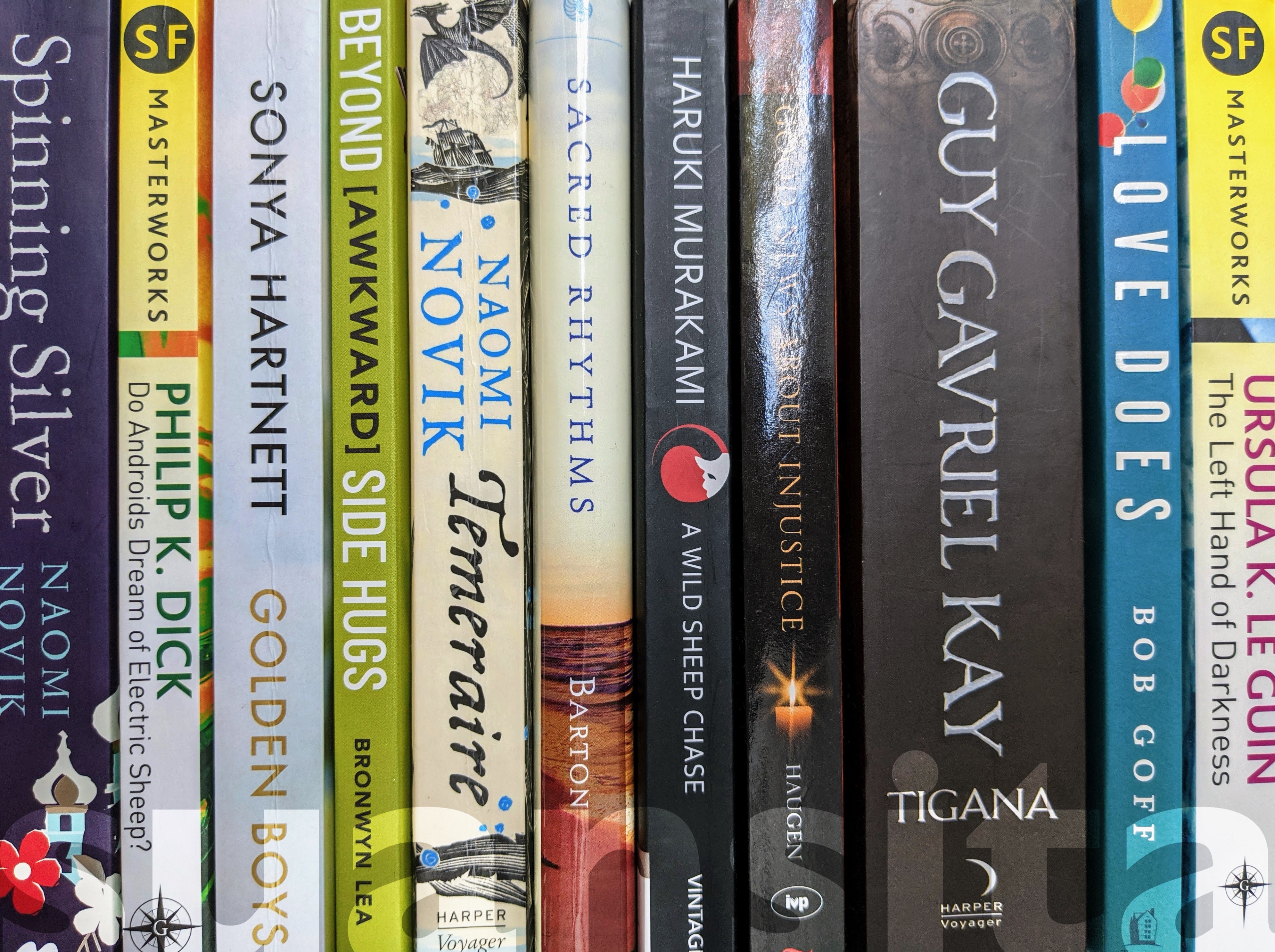I know I sound snooty when I say I read more than I watch Netflix, but it’s true. Here’s an overview of my 2020 book consumption: the most impactful reads, notable mentions as well as some of the disappointments.
Most impactful reads
The Left Hand of Darkness – Ursula Le Guin
I knew she was the Queen of Sci-Fi, but I’d never heard of The Left-Hand of Darkness until I read this blog about how groundbreaking and moving it is.
Narrated by an anthropologist, the detached tone masks some serious complexity. While the protagonist explores a new planet, living among its gender-fluid humanoid population, he’s also exploring what it means to be human, male or female, and how gender shapes so many other aspects of society.
Sacred Rhythms – Ruth Haley Barton

Our staff chaplain, Jenny, not only recommended this book, she told me it was a turning point in her spiritual formation. High praise indeed – and Sacred Rhythms did not disappoint!
Beautifully yet unpretentiously written, it truly is a guide to going next level with your faith. If you’re wondering if there’s more to being a Christian than church, Bible study and trying to pray regularly, then this is the book you’ve been thirsting for.
Do Androids Dream of Electric Sheep? – Philip K. Dick
I love both the original Blade Runner and the 2049 films, but the book is better – actually.
The writing style punches rather than flows, which I found distracting for a couple of chapters before it became the most natural thing in the world. It’s a short book with a straightforward storyline and yet it’s so, so layered. It overflows with questions and ideas about what it means to be human.
As someone who is passionate about editing, I loved how tightly told the story is. No word is wasted, even things that seem random when introduced have a function and purpose in the whole.

Damascus – Christos Tsiolkas
A brutal but thought-provoking read – or rather listen, since I had the audiobook. I can’t say I loved the book and would buy copies for all my friends, but I can’t deny it impacted me. This reimagining of early Christianity through the eyes of a flawed St Paul provoked so much thought and feeling in me that I wrote an entire blog post on how I felt about it.
Notable mentions
Tigana – Guy Gavriel Kay
Tigana was recommended to me by David and Lucy, as I described the premise for a novel I never wrote, about a colonised people whose language has been forbidden. While this book deals with the power of names – specifically the unspeakable name of the conquered people’s homeland – rather than language more broadly, it’s also wonderful as an epic yet standalone fantasy novel, in a genre dominated by trilogies and series of seven plus books.
One point of criticism is that the (male) author’s attempt to create strong female characters is, frankly, a bit lame. The women fall into one of two categories: “haughty and beautiful” or “demure with quiet courage (but pretty of course)”.
A Wild Sheep Chase – Haruki Murakami
Another David recommendation, this novel is very difficult to classify – part noir, part detective novel, part political, part psychological thriller. Perhaps magical realism is the best genre to assign it. The book took a while to get into because the first-person narrator is a bland and unlikeable fellow. But I stuck with it and it turns into an absorbing, if occasionally mystifying, read.
Look, it’s just a very bizarre book. And not in a bad way.
Temeraire – Naomi Novik
An op-shop find, I was drawn to the fact that the author began her career designing video games. It’s more historical fiction than anything else, but then again dragons = fantasy. I love the personality Novik has given Temeraire and the friendship that develops between this dragon and his handler Will is quite beautiful.
This is also the first time I’ve read about a character feeling extremely tired after an unpleasant conversation in which they suppress their anger – it really resonates and I wonder how I haven’t read more about psychomatic experiences and responses in literature.

Somehow disappointing reads
Love Does – Bob Goff
It seemed everybody, everywhere, was raving about Bob Goff. When I verbalised a desire to see what the fuss was about, my colleague Dave generously gifted me a copy of Love Does.
The book definitely answers the question of “What’s so awesome about Bob Goff?” Full of anecdotes from Bob’s life, it’s clear this guy is impulsive yet charismatic – and he’s endearing because he’s impulsive in a loving, other-centred way. He does wacky things that most people wouldn’t have the balls to even think of doing. He is the Ultimate Enneagram 7.
But the book reads as a collection of anecdotes – mostly cool, a couple are weak – and at the end of the chapter, every incident becomes a fable. Not my cup of tea. I felt like this should have been a blog series rather than a book.

Emma – Jane Austen
It seemed particularly outrageous after watching the latest film adaptation that I’d lived this long without ever reading Emma. So I did. And I found that, in true Jane Austen fashion, it was well-observed with on-point dialogue. Yet after seeing the movie, it kinda felt, well, slow.
In short: Loved Mr Knightley. Book too languid.
Spinning Silver – Naomi Novik
Enjoying Temeraire and reading reviews of Novik’s other work inspired me to order a copy of Spinning Silver. I was excited about the prospect of a standalone fantasy novel combining fairytale and eastern European folklore. While this novel was definitely engaging, in the end it didn’t quite meet my lofty expectations.
Novik cleverly inverts the model of the young man rescuing the damsel in distress and it is a page-turner for the most part. Yet I found six narrators was far too many and some of the resolutions were a bit too far-fetched and neat to be plausible.

No Friend But the Mountains – Behrouz Boochani
While there are some beautifully and/or hauntingly rendered parts, this is a thoroughly depressing book. I guess you expect that when it’s written by an asylum seeker who’s been stuck in an Australian offshore detention centre for years.
It’s a feat of literature and logistics in that Boochani smuggled the whole thing out for publication via SMS to friends, but the actual story is dark and hard without being intriguing or satisfying. Having different readers of varying ability in the audiobook version didn’t help. Large parts of this book have a similar tone and style to Jose Saramago’s Blindness, an acclaimed novel I’m absolutely unable to acclaim.
This Is Marketing – Seth Godin
While the “disappointing” books listed above are actually still enjoyable reads or have some redeeming qualities, this one is downright terrible. I’m sure Seth Godin is the father of modern marketing or something to that effect, but this book sucks big time. I struggled to get through even a few short chapters of this book. It is so poorly written and in need of editing that I cannot bring myself to continue and feel cheated for having paid money for it.
I ordered this based on a comment by a reader on a blog I wrote around my love/hate relationship with marketing, so presumably it’s some sort of response to the questions I raise there.
What have you read this year? Please leave a comment with your recommendations so I can add them to my 2021 wishlist. Or leave me your warnings so I can keep them off next year’s list!





3 comments